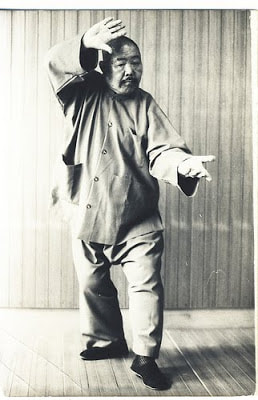|
Over the last few decades the practice of Qigong (pronounced chee-gung) has spread from China to the West and has become increasingly popular. In a similar way to the migration of the different systems of yoga from India, the majority of qigong practices are modernisations of very old health and spiritual traditions.
Unlike yoga, there are literally thousands of styles of qigong. This is in part due to a huge qigong boom that occurred within China during the late 1970’s and 80’s, known as ‘qigong fever’. Qigong at this time was the first group activity that gave the Chinese people any semblance of social freedom after the trauma of the ‘Cultural Revolution’. In many ways it acted as a catharsis for the national psyche. This gives us an idea of the nature of qigong- above all it is most esteemed for its ability to heal. Qigong promotes a feeling of being at home in the body, of being safe in one’s body. When qigong skill develops, a good practice session will create a feeling of radiant contentment, of being utterly at ease within body and mind. On one level, by regulating the breath and anchoring awareness within the body, qigong calms the mind and settles the nerves. On another level, through specific movements, stretches, and self-massage, qigong is beneficial on nearly every physiological system of the body, from the lymphatic to the hormonal to cardiovascular. This is why it is thought of as a preventative medicine. A well-known characteristic of qigong practitioners is that they retain physical suppleness, health and mental clarity well into old age. Although historically in China it has always been known that qigong exercises have multiple benefits for health and wellbeing, only more recently have studies been carried out to ascertain specific effects. The research so far is very positive, showing consistent results that qigong is beneficial for cardiopulmonary, immune and inflammatory, brain and neurological, bone health, and psychological health.* Not only can qigong be practiced as preventative healthcare, but it is also well known to assist the body in healing and recovering from disease. This applies to anything from quickening recovery from colds or physical injuries and strains, to assisting the body in healing chronic or more debilitating issues such as heart disease, depression, or cancer. As a simple practice of 10-20 minutes a day, qigong can have a huge impact on physical health, on improving posture, breath, digestion, and sleep. If one chooses to go deeper into a specific system of qigong, it can have a profound effect on every aspect of one’s being. It can strengthen one’s resolve in the face of uncertainty, it can transform negative thinking patterns, self-loathing, fear, anger, and grief. It can strengthen our capacity for love and kindness. In short, it can become a spiritual discipline, but is not bound by any religious conviction. It doesn’t matter if Christian, Muslim or avoute atheist sceptic- qigong is adaptable to any lifestyle or belief system. This is because it is in the most general terms, simply a way of building coherence between the mind, body, and breath. If you are curious about trying qigong it is worth exploring a few different styles and finding the most appropriate teacher for your needs. Finding the right qigong for you will be explored in a follow-up article to this one. *http://www.ncbi.nlm.nih.gov/pmc/articles/PMC3085832/
2 Comments
|
AuthorWritings on health, happiness, and innovating between traditional and modern lifestyles. Archives
December 2021
Categories |

 RSS Feed
RSS Feed